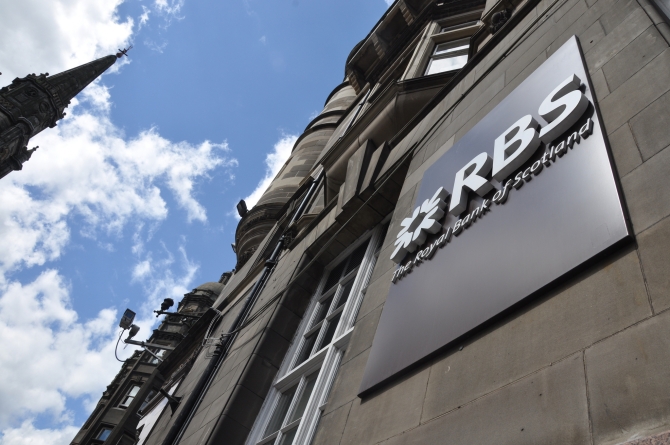Following yesterday’s news that investors in Scottish commercial property are being offered a get out clause on pre-referendum acquisitions, the question of whether or not Scotland will become an independent country is already having an impact upon businesses north of the border.
Now, it appears RBS will follow insurance giant Standard Life in moving its headquarters out of Scotland in the event of a Yes vote, with the high street banking chain confirming it will examine suitable London premises in which to relocate its headquarters.

In a statement, the bank expressed a belief that it would be “necessary to re-domicile the bank’s holding company” should Scottish voters call for independence, meaning that RBS’s head office could soon have a London postcode. However, chief executive Ross McEwan was quick to reassure staff members that there are as yet no intentions to move operations or jobs south of the border.
Scottish First Minister Alex Salmond confirmed that he had received a letter, which had also been sent to RBS staff, in which Mr McEwan pledged to keep jobs in Scotland.
It said; “It is my view as chief executive that any decision to move our registered headquarters would have no impact on our everyday banking services used by our customers in Scotland.
“This is a technical procedure regarding the rotation of our registered head office based on current strategy and business plan.
“It is not an intention to move operations or jobs.”
RBS’s announcement follows a similar statement from Lloyds Banking Group, which will also move its legal department to its existing London headquarters.
The UK government holds a 25 per cent stake in the banking group following a post-financial crisis bailout, meaning that many customers are particularly worried about the impact the referendum could have on the Lloyds-owned Bank of Scotland and Halifax businesses.
In a statement, Lloyds pointed out that; “We have contingency plans in place which include the establishment of new legal entities in England – this is a legal procedure and there would be no immediate changes or issues which could affect our business or our customers.
“There will be a period between the referendum and the implementation of separation, should a Yes vote be successful, that we believe is sufficient to take any necessary action.”
The news comes only a day after Aberdeen Asset Management – one of Scotland’s most successful domestic firms and the largest fund manager north of the border – expressed a belief that the country could become a “huge success” following a vote for independence.
Indeed, it seems that many businesses are now accepting that Scotland’s future is not necessarily the gloomy one painted by the Better Together campaign, leading many to wonder whether the vote may swing in the favour of independence.
Responding to the announcements by RBS and Lloyds, Mr Salmond said; “We know the moves both from Lloyds and the Royal Bank of Scotland will have no impact on operations or jobs – they are about brass plaques.
“The way to avoid uncertainty in the financial markets is for the United Kingdom to say, following the Edinburgh agreement which they signed, that they will sit down reasonably with the Scottish government after people in Scotland vote Yes in the referendum, and discuss these matters in the best interests of Scotland and the rest of the United Kingdom.”
Do you think the actions of large businesses such as Lloyds and RBS could have an impact on the referendum result?